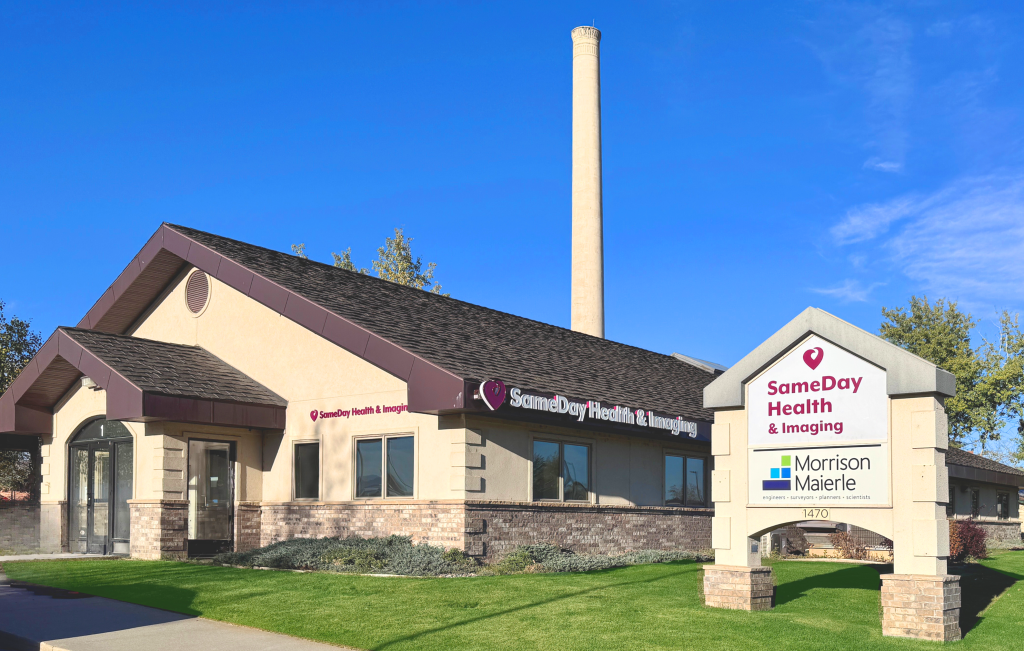Lab draws NOW available seven days a week.
Schedule your Patient-Directed Lab Testing appointment during regular business hours at three convenient locations:
SameDay Health & Imaging, Outpatient Center, and Primary Care.
Printable list of Blood Draw Screening Tests and Pricing
SameDay Health & Imaging
1470 Sugarland Drive
(between Walmart and WyoVision)
Monday through Friday: 6:30 am to 5:30 pm
Saturday and Sunday 9am to 4 pm
Sheridan Memorial Hospital Outpatient Center
1333 W. Fifth St., Suite 100
Monday through Thursday: 6:30 am to 5 pm
Friday: 6:30 am to 4 pm
Primary Care
61 S. Gould St.
(Downtown)
Monday through Thursday: 8:30 am to 5 pm
Friday: 8:30 am to 4 pm
Patient-Directed Lab Services – Annual Screening Test
Sheridan Memorial Hospital offers Annual Screening Tests to help you monitor your health. These patient-directed lab tests do not require a doctor’s order, and results will be available through MySheridanHealth – our Patient Portal – or by mail upon request.
Important Information:
- Fasting: Some tests recommend 8-12 hours of fasting for accuracy.
- No food or gum
- Drink plenty of water
- Medications may be taken
- Persons with diabetes may fast for 8 hours
- Results & Provider Review: Your provider will not be notified of your results. If you’d like them to review your results, please contact them directly.
- Payment & Insurance: Payment is due at the time of service. These tests are not covered by Medicare or private insurance and cannot be billed by Sheridan Memorial Hospital.
- Appointments & Scheduling:
- Schedule online to receive email and text reminders.
- Call 307.675.4675 (message line) for assistance.
- Clothing: Please wear a short-sleeved shirt or comfortable clothing for the blood draw.
Doctor-Ordered Lab Tests
Doctor-ordered and provider-ordered lab tests can be drawn at any of our three locations no appointment is required – just walk in during any of the three location’s normal business hours.
For questions, please leave a message at 307.675.4675.
Screening Tests & Information
FASTING RECOMMENDED PRIOR TO BLOOD DRAW
These screenings are intended to provide information to be used by health care professionals to detect potential problems and help make you more aware of your health. The panel is a group of tests routinely done to determine general health status. This panel also includes the Heart Risk Panel.
This panel is covered annually for Sheridan Memorial Hospital employees and Foundation members.
FASTING RECOMMENDED PRIOR TO BLOOD DRAW
Cholesterol, Triglycerides, HDL, LDL, high-sensitive CRP
This is a baseline assessment for heart health. By looking at your cholesterol and triglycerides – which are like a window to your heart health – this screening is a proactive approach to a healthier heart and can identify potential risk factors for cardiovascular disease.
A TSH blood test is used to determine how well your thyroid is working, diagnose thyroid conditions and measure the amount of thyroid-stimulating hormone in the blood.
An iron profile and ferritin test measure the amount of iron in your blood. You may consider this test to determine if you have too much or too little iron in your blood, which can indicate iron deficiency anemia, iron overload, liver disease or other health issues.
This test measures the average blood sugar levels over the past three months. While this screening is a crucial indicator for pre-diabetes and diabetes, it does not diagnose those conditions. Rather it is used in the management of such conditions.
Healthcare providers typically test for testosterone levels in males if they show symptoms of low testosterone (such as low muscle mass, infertility or low libido) and in females if they show symptoms of high testosterone levels (such as acne, excess facial hair or body hair, infertility, irregular periods).
This screening measures a specific protein that is produced by the male prostate gland. The recommended age for beginning this screening varies from 47 to 50, depending on an individual’s risk factors. Elevations of PSA may occur in men with prostate cancer or non-cancerous prostatic diseases. Talk with your doctor about prostate screening.
Vitamin D is a fat-soluble vitamin that is made by the body after exposure to ultraviolet rays from the sun. Vitamin D can also be obtained by taking supplements and from eating certain foods. This test provides the total level of vitamin D found in a patient’s blood serum and provides information on the levels of vitamin D2 and vitamin D3 in blood serum which is helpful for physicians prescribing therapy for vitamin D deficiency. A physician would typically evaluate a vitamin D test result in connection with several other factors affecting a patient’s health, such as medical history, gender and age. Recently, they have found that in some cases, relatively low levels of vitamin D may increase your risk of other diseases.
This test will look at levels of vitamin B12 and Folate in your blood, which can indicate possible deficiencies, anemia, malnutrition or malabsorption.
The Complete Blood Count is used to present a general picture of overall health. It is also used to diagnose diseases when people are not feeling well and to monitor treatment of many disease states such as anemia or leukemia.
The seven different tests include:
- White Blood Cell count (WBC)
- Red Blood Cell count (RBC)
- Hemoglobin concentration (oxygen carrying capacity)
- Hematocrit value (volume of RBCs)
- Platelet count
- Indices – MCV, MCH, MCHC
- WBC differential




